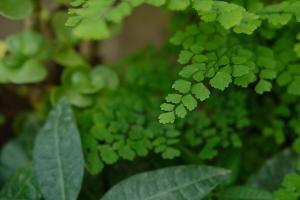When to Plant Fruit Trees in New Hampshire
Fruit trees bring beauty and bounty to any yard or garden. Growing fruits like apples, peaches, and pears can not only add to your landscaping but also provide you with fresh, delicious fruits to enjoy. If you live in New Hampshire and are considering planting fruit trees, it's important to know when to plant them to ensure they thrive.
Best Planting Time
In New Hampshire, the best time to plant fruit trees is in the late fall, from mid-September to mid-November, or in the early spring, from late March to early May. Planting during these times allows the young trees a chance to establish their roots before the harsh winter or hot summer weather arrives. It's important to avoid planting during the summer months, as the heat and lack of rainfall can stress out the trees and make it difficult for them to establish root systems.
Choosing the Right Trees
When selecting fruit trees for planting, it's important to choose varieties that are suited for New Hampshire's climate. Some common fruit trees that grow well in New Hampshire include apples, plums, peaches, and pears. It's also important to choose trees that are disease-resistant and have good soil adaptability. Some varieties that do well in New Hampshire include McIntosh and Cortland apples, Stanley plums, and European pear trees.
Preparing the Soil
Before planting, it's important to prepare the soil to give your fruit trees the best chance of success. Start by clearing the planting area of weeds, grass, and other debris. Next, loosen the soil to a depth of about 18 inches and amend it with compost or other organic matter to improve drainage and nutrient content. Avoid adding too much nitrogen to the soil, as this can cause overly fast growth and weak wood.
Planting the Trees
When planting fruit trees, dig a hole that is wider than the tree's root ball and about as deep as its height. Spread the tree's roots out in the hole and fill it in with soil, packing it down tightly to remove any air pockets. Water the tree immediately after planting to help settle the soil and promote root growth. If planting multiple trees, space them about 15 to 20 feet apart, depending on the eventual size of the tree.
Maintaining Your Trees
Once your fruit trees are planted, it's important to maintain them to ensure healthy growth and abundant fruit. Water the trees deeply every one to two weeks, especially during dry spells, and provide them with a balanced fertilizer once a year. Prune your trees annually to remove any dead or diseased wood and to shape the trees for optimal fruit production. Watch out for pest problems and address them quickly, and properly mulch your trees to retain moisture and control weed growth.
In Conclusion
Planting fruit trees in New Hampshire is a rewarding endeavor that can provide you with fresh, delicious fruit for years to come. By planting during the right time of year, choosing the right varieties, preparing the soil, planting properly, and maintaining your trees, you can enjoy a bountiful harvest season after season.

 how many times do yo...
how many times do yo... how many planted tre...
how many planted tre... how many pine trees ...
how many pine trees ... how many pecan trees...
how many pecan trees... how many plants comp...
how many plants comp... how many plants can ...
how many plants can ... how many plants and ...
how many plants and ... how many pepper plan...
how many pepper plan...































